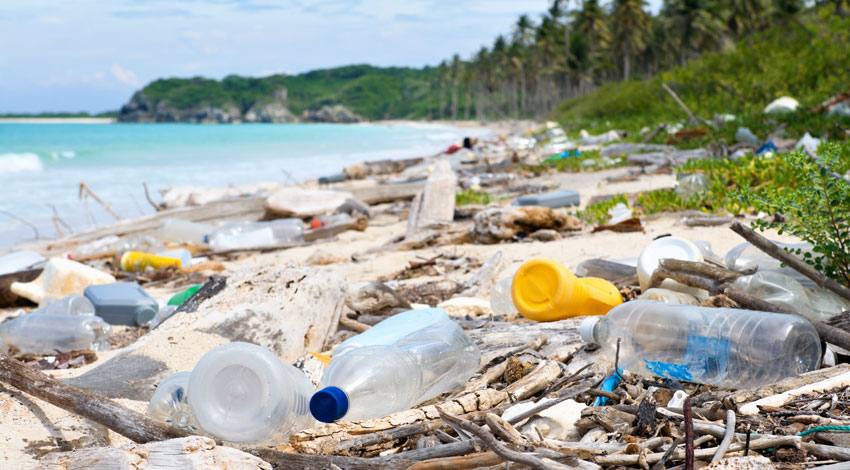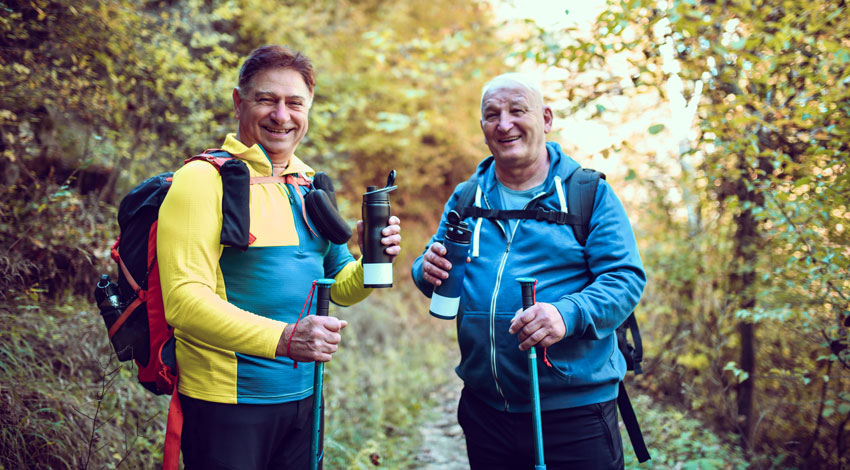Reducing Single-Use Plastics on Learning Adventures & Beyond
Year over year, the United States has increased its production of single-use plastics, which means every year we increase the amount of plastic waste that enters our waterways, oceans and almost everywhere else on the planet.
Even when we do our best to recycle, so much of our recycling is not managed in the ways we think. The United States exports a lot of recycling to countries in Africa and Southeast Asia, and these countries are already struggling with their own waste management. Much of our recycling in the United States is incinerated, which releases toxic chemicals into the air. Only around 3% of plastic in the U.S. is actually recycled.

But enough doom and gloom — let’s talk about solutions. A core value of sustainability at Road Scholar is reducing waste, which means we must address our use of single-use plastics on programs. Beginning in 2025, we are making an effort across all of our programs to reduce and eliminate plastic water bottles, plastic cutlery and straws where possible. While these items seem like they can have a big impact, they add up quickly. Consider this: If you take a 10-day program with Road Scholar and use three plastic water bottles each day, you’ve added 30 bottles of waste to the community you are visiting.
One of the most powerful things we can do as individuals is make an effort to change our habits. For example, carry a reusable water bottle when out running errands or when taking your next Road Scholar program. When you are shopping, assess the amount of plastic that goes into product packaging, and consider whether or not you really need to wrap your veggies in a flimsy plastic bag. When you are shopping online, research alternative companies that are committed to giving back to the environment. A small amount of research will quickly help you figure out what companies are actually walking the talk and what companies are prioritizing profits over people and our increasingly vulnerable planet.

Let’s be honest — plastic is impossible to avoid. When you finish a bottle of orange juice, you have a large plastic vessel that takes up space. Try filling it with the plastic wrappers that most of our snack foods and much of our food comes wrapped in. You’d be surprised at how muchyou can fit into one bottle. Once it is stuffed full, you’ve made your first plastic brick! These can be used to build in the garden or donated to organizations using them as actual building materials. If need be, you can throw it out, but know that you’ve captured and compressed a fair amount of waste that won’t go flying out of the trash truck or landfill and find its way to your local river or beach.
Be on the lookout for more information from Road Scholar as we approach 2025, which will be a year of change as we work to reduce plastic and all waste on our programs.
